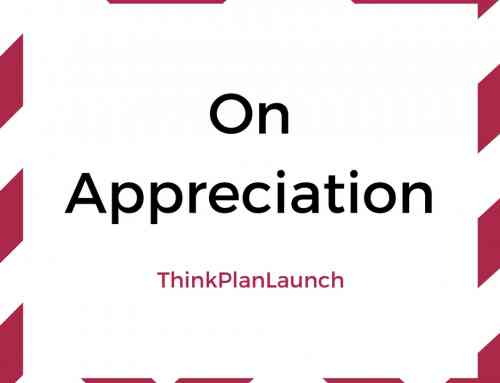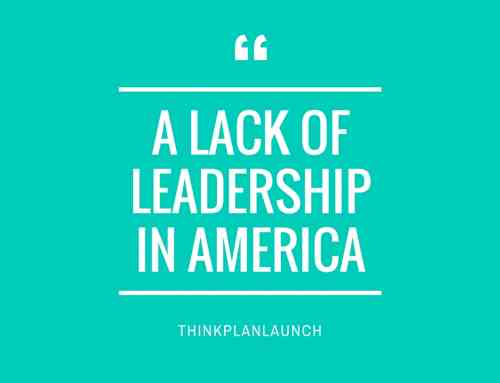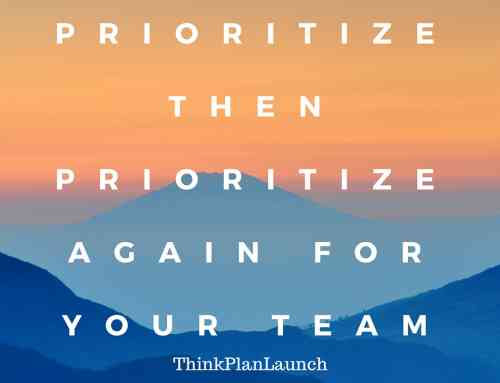Millennials (myself included) are creeping up on older generations in the workplace. This White House Council of Economic Advisers report shows we are the largest generation in the workforce today. Furthermore, we will comprise over 75% of the workforce by 2030.
As boomers continue to retire, workplace dynamics will continue to change – and certainly in no small part thanks to us.
What does all this mean? Namely, that it’s increasingly important to intelligently hire, train, and manage millennials.
Table of Contents
Millennials comprise the most diverse generation ever.
If you take a few minutes to skim through the white house report above, you’ll notice some familiar findings:
- Millennials are the largest and most diverse generation the US has ever seen.
- Millennials are highly creative and were shaped by technology.
- Millennials value family and community.
- Millennials are more likely to focus exclusively on studies vs. school and work.
- Millennials have invested in human capital more than previous generations.
- Investments in human capital are very likely to have a “substantial payoff” for Millennials.
You can find more exciting insights in the report, with plenty of detail and research available for further reading.
There is no doubt we are a diverse generation – this is what stands out most to me as a millennial myself. For instance, my group of business associates, friends, and family spans across many age groups, genders, skin colors, ethnic backgrounds, and religions. This is common for many, if not most millennials.
We grew up with rapidly-progressing technology, the internet boom, and historic economic events. Generally speaking, most millennials are receptive, educated, and quick-thinking – and are quickly redefining what it means to collaborate and progress together.
Speaking of which, it is good that many millennials have these strengths. Soon we will control the majority of spending in our economy. We will take over leadership roles and, fill important offices in business and politics. These responsibilities require intelligence and empathy, and many millennials possess those traits naturally.
As a bonus, many millennials are visionaries and innovators – carrying a healthy dose of progressive-thinking and optimism about the future. This unique makeup has produced prominent figures like Mark Zuckerberg, Lady Gaga, and countless others. This is especially true in tech and software, but we are everywhere – you will find us in all fields.
What’s the other side of the coin, though?
For all of their great qualities, Millennials also have flaws and shortcomings. Everyone is now well aware of the stereotypes attached to the Millennial group:
- Lazy, entitled, and narcissistic.
- Unable to handle constructive or “negative” feedback.
- Seeks recognition, awards, trophies, etc. for average (rather than superb) performance.
- Easily distracted, sidetracked by technology, inability to focus.
- Job hoppers/unreliable.
- “Smart” slackers.
- Etc.
The sad thing is that there is some truth to this. While it ultimately comes down to the individual level – some millennials fit the stereotype better than others – this stigma emerged because enough millennials exhibited these traits to earn the label.
The implications of this are twofold:
1) Millennials must work to overcome these stereotypes by developing and achieving:
- Strong work ethic.
- Top-notch communication skills.
- High emotional intelligence.
- Time-management ability.
- Self-discipline and resilience.
- Realistic expectations.
2) Business leaders and managers (including millennials themselves) must proactively learn to:
- Understand what drives millennials into action.
- Lead, motivate, and manage millennials properly.
- Tailor their communication style to millennials.
- Achieve high emotional intelligence for handling tough situations involving millennials.
- Understand millennials’ stress and work to minimize it in order to boost productivity.
- Provide ongoing training and developmental opportunities for millennials to help them build the skill sets listed above.
Millennials are tired of managers who are not leaders.
Millennials don’t deserve all of the stereotypes that have been applied to them, but we still have a responsibility to work hard and prove our worth. This is true on an individual level as much as it is at work, where we must show our clients and/or employers our true value.
At the same time, business managers and HR departments likewise have a responsibility to get smarter about the way they hire and manage people. If having said responsibility isn’t enough, then perhaps the threat of losing money or talent (or going out of business) will provide ample motivation.
Many a business has crashed and burned because they:
- Failed to act sooner, or
- Failed to identify the existence of a problem, or
- Suspected a problem, but lacked the tools required to measure, identify, and fix it.
Millennials quit their managers – not their jobs – and the businesses who will succeed in the forthcoming decades are those with management teams smart enough to recognize this, and who proactively take steps to optimally engineer their human capital processes.
Namely, these processes include:
- Hiring (employee selection)
- Onboarding (initial training)
- Training & Development (ongoing)
- Communicating Effectively
- Leading, Managing, and Motivating
- Career Pathing
Leadership is defined by how well the leader takes care of their group.
Much of what defines a leader is how well he or she takes care of their group. People elect leaders who they believe will represent their interests, be transparent and fair, and clear obstacles from the path to success. This is true in politics, business, and other types of groups who appoint leaders.
Part of the problem in Corporate America today, however, is that many – but not all people in leadership positions are doing these things. They are failing to recognize and address critical problems within their respective groups. Authority figures may be so focused on managing tasks efficiently that they forget to lead their people.
This destroys buy-in, leads to increased turnover, reduces productivity, and causes people to disengage. It leads to a lack of balance and permanently damages the bottom line. It makes employees, managers, board members, and shareholders unhappy.
And while each of these people lose in different ways, they all lose financially. Employees make less over the long run, while managers encounter delays or project failures. Executives and board members are fired for incompetence. Shareholders and investors lose money. It’s a shame, especially since it can be prevented so easily.
Failure doesn’t all happen at once and it’s not always obvious, but the pattern is easy enough to understand and recognize if you’re looking for it. Realize, too, that the likelihood of encountering such problems increases as organizations scale. This is due to emergent properties of growing systems.
True leaders are those who are committed to understanding the ever-changing nature of their business – and who do everything in their power to manage operations and lead their people properly. This starts with an intelligent, proactive approach to hiring, training, and retaining team members, because people are at the core of any company.
Millennials are tired of incompetent leaders, managers, and HR departments.
We have already discussed the importance of leaders, managers, and HR personnel taking Human Capital Management (“HCM”) seriously.
Most millennials intuitively understand the importance of good HCM, which is why they are tired of incompetent managers and HR departments who just don’t get it.
This is easy enough to understand. It’s hard for millennials to stand idly by while they watch their organization slowly self-destruct. Heck, it’s hard for anyone to recognize an obvious problem but realize the people in power aren’t fixing it.
Imagine playing a game of chess where you see an obvious checkmate, except that you’re playing on a team with someone who can’t see it – and it’s their turn to play. Then imagine you tell them about the move, but they still can’t see it – or they insist on making a different move anyways.
Many millennials are intolerant of this type of nescience.
If they sense that leadership is incapable of understanding and addressing problems, or worse – that their manager or leadership team does not care – millennials will tend to disengage and move onto greener pastures.
Note, this is true regardless of whether or not a real problem actually exists. The mere perception of an issue can be enough to drive a millennial into action. Unfair as this may be, organizations will benefit by keeping communication lines open and managing these perceptions accordingly (and of course, fixing any real problems that do exist).
Millennials tend to speak up and offer solutions freely, but sometimes feel misunderstood.
Many millennials are likely to speak up about the issues they perceive before they disengage or move on. They will give you a chance to show leadership before doing anything drastic. But depending on the scenario, this can cause others to view them as arrogant or argumentative (or as meddling in matters above their pay grade).
Most millennials speak up, though, because they care. They want to make a positive impact on their organization. They wish to help their co-workers, subordinates, and superiors. Before they resort to moving on or giving up on their company, millennials want to see if they can seed the required change themselves.
Millennials are basically good people with good intentions who often feel misunderstood. When they offer up a great idea or a potential checkmate solution to their employer, they want to be seen as innovative and be helpful. They want to be recognized for brainstorming win-win possibilities that may benefit everyone.
Millennials do not expect every idea they bring to the table to be adopted, but they want to be acknowledged. They want to have objective discussions about ways to improve things. They want a boss who has an open mind for considering the possibilities.
At a minimum then, managers and leaders must do their best to provide the acknowledgement millennials crave. They must provide an open forum for discussion, even while reserving the right to make the final decision. Furthermore, managers must convey appreciation for millennials’ contributions – and avoid saying anything that would reflect bias against them as a group.
So, what’s your game plan?
The really great news, too, is that you have more resources than ever before to accomplish your goals. You don’t need to guess at the right way to hire, manage, or motivate people any longer.
For example, our system for hiring allows you to achieve 93% hiring confidence. It’s been tested in the marketplace and it works. Thousands of companies around the world have already used it to optimize their selection processes. There is no question about it.
All the math, data, and real-world testing has been done. Patents have been issued. The ship has sailed, you just need to buy yourself a ticket and get caught up if you’re not there already.
This is basically a horse-and-buggy situation – and if you’re still engaging in traditional, outdated processes for selection (collect resumes, have an HR generalist attempt to screen them properly, conduct interviews, make hires on gut feelings) – then you are way behind the curve.
It’s already well-established that interviews don’t work.
Companies like Google proved long ago that traditional hiring processes don’t work – producing at best around 50% accuracy. Consider, for example, what William Poundstone writes in his acclaimed book, Are You Smart Enough to Work at Google?
“The deep, dark secret of human resources is that job interviews don’t work. This isn’t exactly breaking news. Back in 1963, the behavioral scientists Marvin D. Dunnette and Bernard M. Bass wrote:
The personnel interview continues to be the most widely used method for selecting employees, despite the fact that it is a costly, inefficient, and usually invalid procedure.
A dozen years later, the recruiter Robert Martin said,
Most of the corporate recruiters with whom I’ve had contact are decent, well-intentioned people. But I’ve yet to meet anyone, including myself, who knows what he (or she) is doing.
Poundstone continues,
“The new economy has taken notice. “In an interview you can tell if a person is a pleasant conversationalist, and you can…rule out the truly inept, but beyond that you might as well be rolling dice,” wrote the founder of Bittorent, Bram Cohen.
Google’s human resources head, Laszlo Bock, said it even more succinctly: “Interviews are a terrible predictor of performance.”
In the pages that follow, Poundstone describes how the evidence for the usefulness of job interviews “is not unlike the evidence for extrasensory perception or alien abductions.” He also reminds us to beware of the common fallacy of hiring people who interview well, rather than people who can be predicted to perform well on the job.
This is just one example, and it is specific with regards to hiring processes. But the principle applies to all aspects of talent management.
As technology has progressed and businesses have had more data to analyze than ever before, using increasingly powerful computers operated by increasingly intelligent people – information has surfaced that has the power to positively and permanently transform talent management. Proven systems have been developed that finally give employers a clear path forward.
In fact, this has been the mission of our partner organization TTI Success Insights for the past 35 years, and they have done an incredible job aggregating such information and developing effective systems for talent management.
Not only do we have accurate, validated systems for hiring employees, but also equally impressive systems for communication, leadership, and organizational management. Simply put, we have the answer key to the test.
Millennials know about solutions like ours and are eager to implement them in the workplace. They want their companies to run efficiently. They want to make sure the right people are getting the right jobs. They want their business to succeed, and they want to succeed individually along with the company.
Conclusion – How to Lead and Manage Millennials
In summary, what millennials are really looking for is strong, intelligent, and empathetic leadership. They want to work for people and companies who support their ongoing development, and who balance social values against the dollar.
The almighty dollar will always be a top priority, of course, because without cash no business can go on. The great thing about focusing on intelligent HCM, though, is that it naturally leads to a healthier bottom line.
When you hire the right people, train them well, and manage them in effective ways, then all of the implicit things that need to be done (generating ideas, completing projects, etc.) to earn dollars start to accelerate. Quality improves, speed improves, efficiency improves, and ultimately the bottom line improves. Turnover is minimized and along with it, all of its associated hard and soft costs.
If you want a checkmate solution for your organization, please let us know. As a company founded by two millennials, we are more than eager to help. ;-)




Leave A Comment